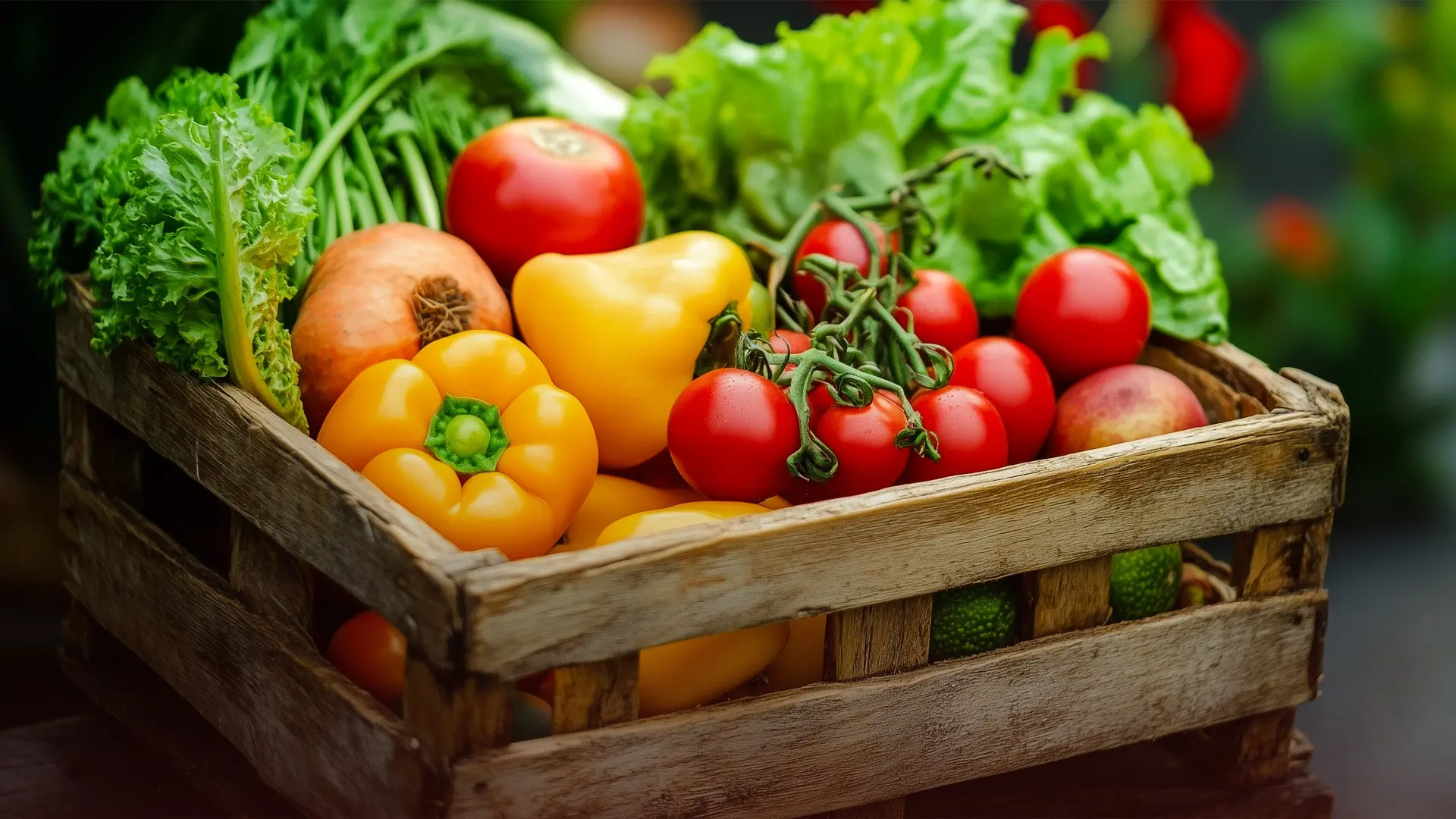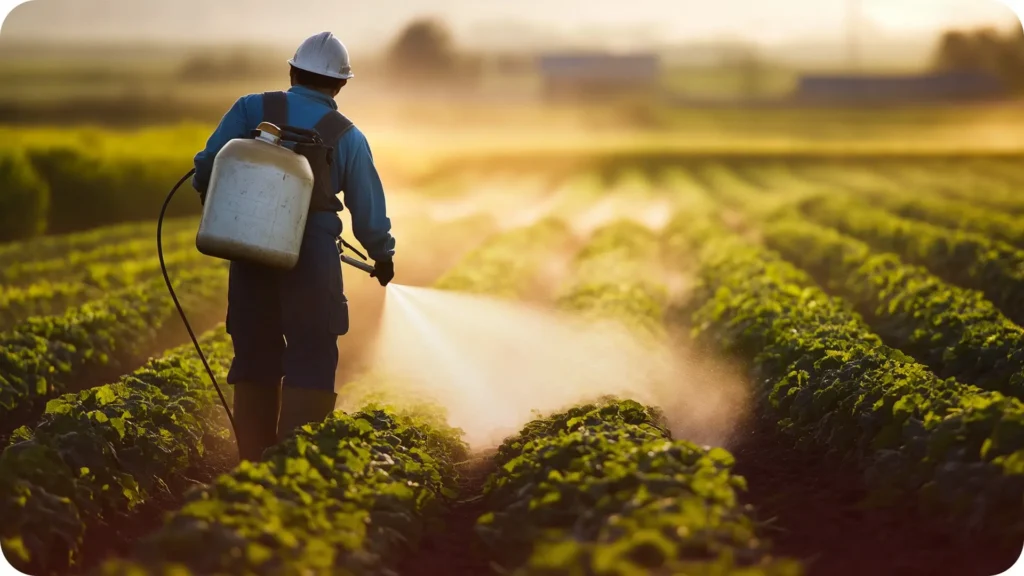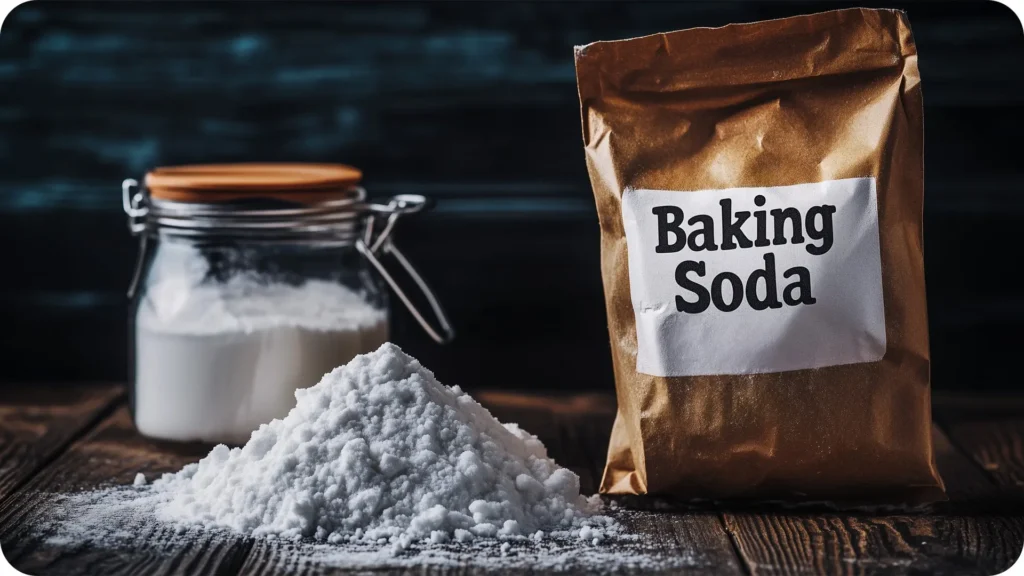
Your Fruits and Vegetables Could Be Toxic For You
Every day, millions of people are eating fruits and vegetables. And with the high production rates, our foods are being covered with many harmful pesticides and toxins. So, a quick rinse under the tap should be enough, right?
The truth is water alone can’t effectively remove these harmful toxins. But what if there was a simple, inexpensive, and natural way to cleanse your fruits & vegetables?
Well, today, we will take a deeper look at the dangers of toxins, which can be found in any fruit or vegetable. And make sure to read until the end for a surprising yet simple method of freeing your food from any harmful substances.
Health Risks of Pesticides and Chemicals
Nowadays, farmers rely heavily on pesticides, insecticides, and fungicides to improve the appearance of crops and to free them from pests. Nevertheless, these chemicals remain on the surface of your produce, and in some cases, they can seep into the flesh.
You might think this toxicity will barely do any harm. However, in reality, research has shown that prolonged exposure to pesticides can lead to various health issues. This includes neurological issues, hormone disruption, and, in some cases, even cancer (we’ll expand on that later).

A study conducted at a Boston clinic found that women who consumed fruits and vegetables with high amounts of pesticides had a higher risk of early miscarriages and unexplained fertility issues. Additionally, other studies have noticed that exposure to pesticides can put children, the elderly, and pets at greater risk.
And then there are more extreme cases. In 2013, a heartbreaking incident occurred in an Indian school, causing around 25 children to die after a meal that was loaded with a harmful pesticide (named organophosphate pesticide). And no, these pesticides aren’t just used in India; they can be found all around the world, including in the United States. In another case, veterinary workers were poisoned by certain pesticides by simply handling pet flea treatments, which caused nausea, breathing difficulties, and skin irritation.
So, it’s clear that pesticides are pretty harmful. But how do we get rid of them?
The Best Way To Remove Toxins From Your Food
To clean your fruits and vegetables, you need to give them a good wash. And yes, a quick rinse with water will get rid of some dirt. However, there is a much more effective way.
A study conducted in 2017 used good old-fashioned baking soda to remove pesticides from produce. Then, they observed how much dirt had actually been cleaned off.

The results are shocking. The study found that soaking apples in baking soda for just 15 minutes removed up to 96% of pesticide residues, which outperformed water and, surprisingly, even bleach.
So, how does Baking Soda work? It breaks down and neutralizes the chemical structure of most pesticides, making them easier to rinse away.
How To Use Baking Soda Effectively
The best part about this method is that it’s pretty simple. All you need is baking soda and water.
Here’s the step-by-step method:
- Prepare the Solution – Mix one teaspoon of aluminium-free baking soda per 2 cups of pure water in a bowl or basin.
- Soak – Submerge the fruits or vegetables in the solution for 12–15 minutes, and let the baking soda do its thing.
- Scrub and Rinse – For solid foods like apples, cucumbers, or carrots, scrub with a brush to remove any residues. Then, rinse thoroughly with fresh water.
- Dry with a clean towel – This helps to remove any remaining waste and helps the products stay fresh for longer.
But is this enough?
How Toxins Can Lead To Cancer
While pesticides are generally harmful to your health, they can also contribute to cancer development. Years of being exposed to chemical toxins can weaken your cells and, as a result, suppress the immune system. Cancer cells thrive, especially in this type of environment, where your body’s natural defenses are weak. Some experts say that exposure to pesticides can increase the risk of cancer as much as smoking does.
We at the Budwig Center have noticed that a buildup of toxins, over time, usually leads to cancer formation. While the body does fight off abnormal cells daily, there comes a point when there are just too many toxins. This overload on the immune system makes it difficult to prevent a disease.
Conclusion
So, if you have cancer or are trying to prevent it, it’s important to reduce your exposure to toxins.
While thoroughly cleaning your fruits and vegetables can contribute to preventing cancer, there is still so much more you can do.
The truth is, to effectively address cancer, you need to focus on all the root causes of the disease. That’s precisely what we focus on with our personalized remote program.
We will teach you how to reduce all possible exposure to toxins. And you will receive natural, effective remedies, along with cutting-edge devices. And you won’t be alone trying to figure everything out; we will support you every step of the way.
Sources:
- Malla, M. B., Bruce, A., & Sohn, M. (2019). Assessment of pesticide residues in fruits and vegetables from different regions. SN Applied Sciences, 1(10), 1485.
- Gilden, R. C., Huffling, K., & Sattler, B. (2010). Pesticides and health risks. Environmental Health Perspectives, 118(6), A258–A264.
- Lu, D., Zhang, X., Zheng, N., et al. (2017). Exposure to pesticides and risk of miscarriage: A systematic review and meta-analysis. Environmental Research, 159, 332–340.
- Alavanja, M. C., Hoppin, J. A., & Kamel, F. (2004). Health effects of chronic pesticide exposure: Cancer and neurotoxicity risks. Toxicology, 198(1-3), 39–45.
- National Geographic. (2013, July 18). Organophosphate pesticides linked to mass poisoning in India. National Geographic.
- ScienceDirect. (n.d.). Organophosphate pesticides: Mechanisms and toxic effects. ScienceDirect Topics.
- Centers for Disease Control and Prevention (CDC). (1999). Illnesses associated with occupational exposure to organophosphate pesticides. Morbidity and Mortality Weekly Report, 48(21), 461–464.
- Park, A. (2017, October 25). The best way to wash pesticides off apples. TIME.